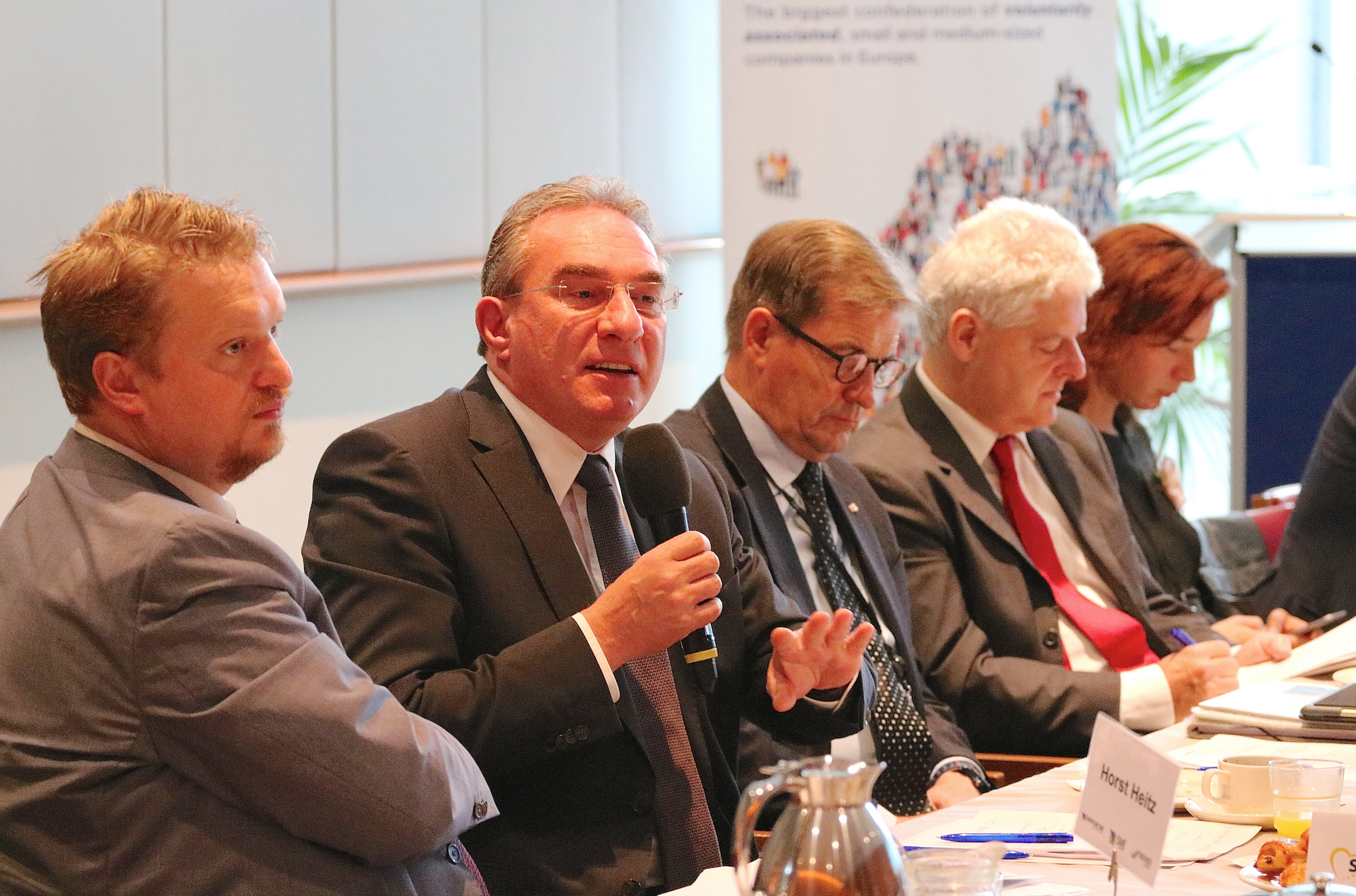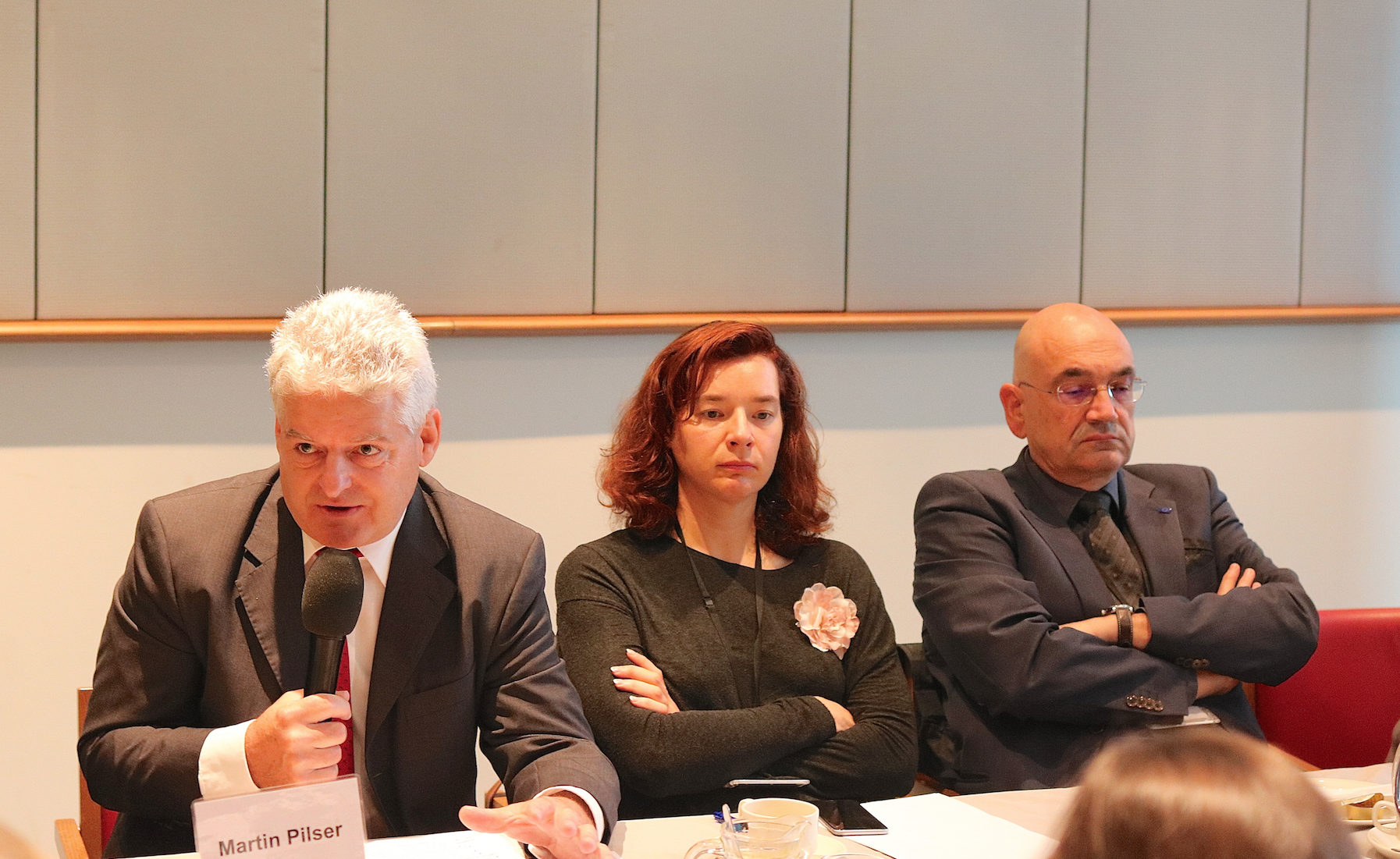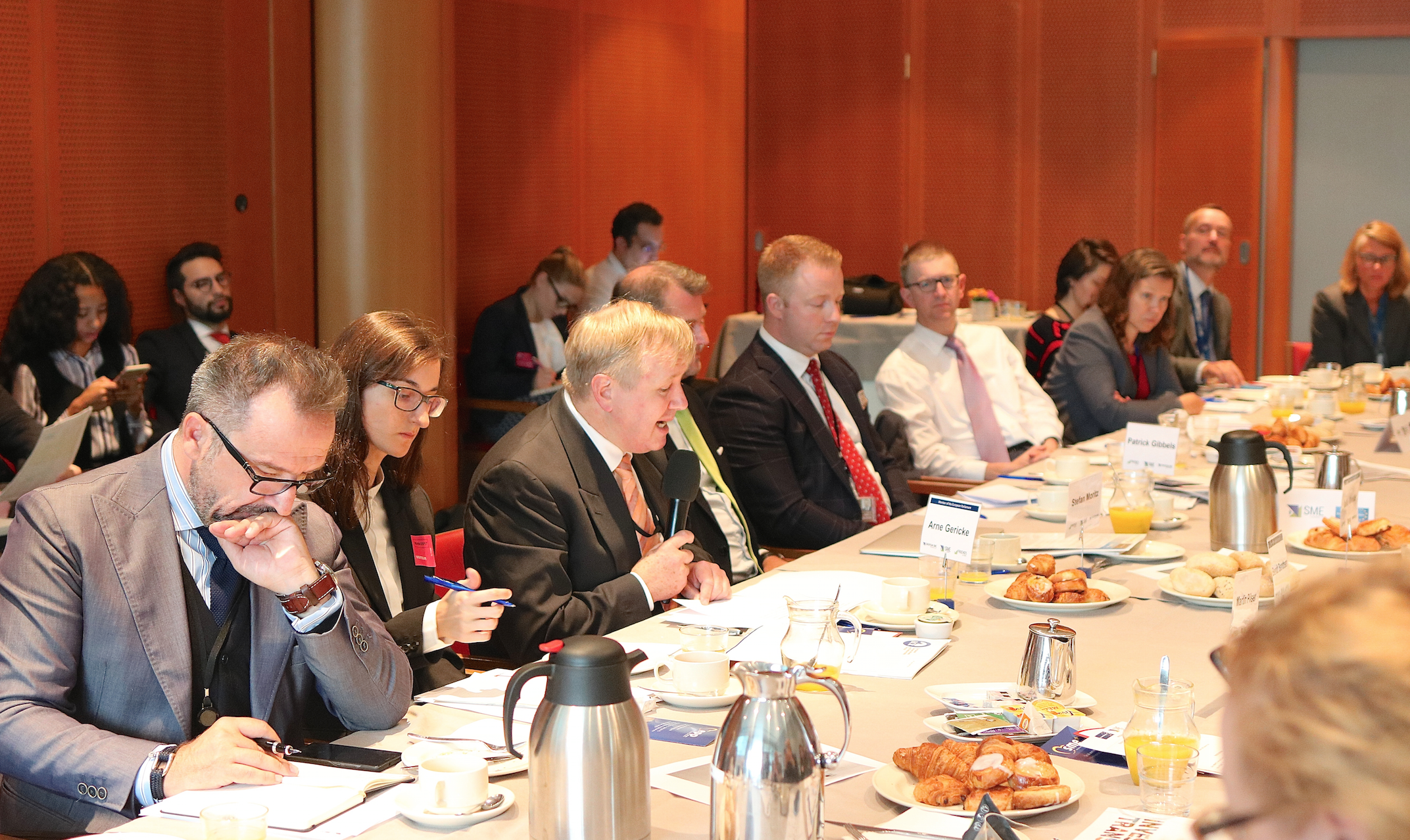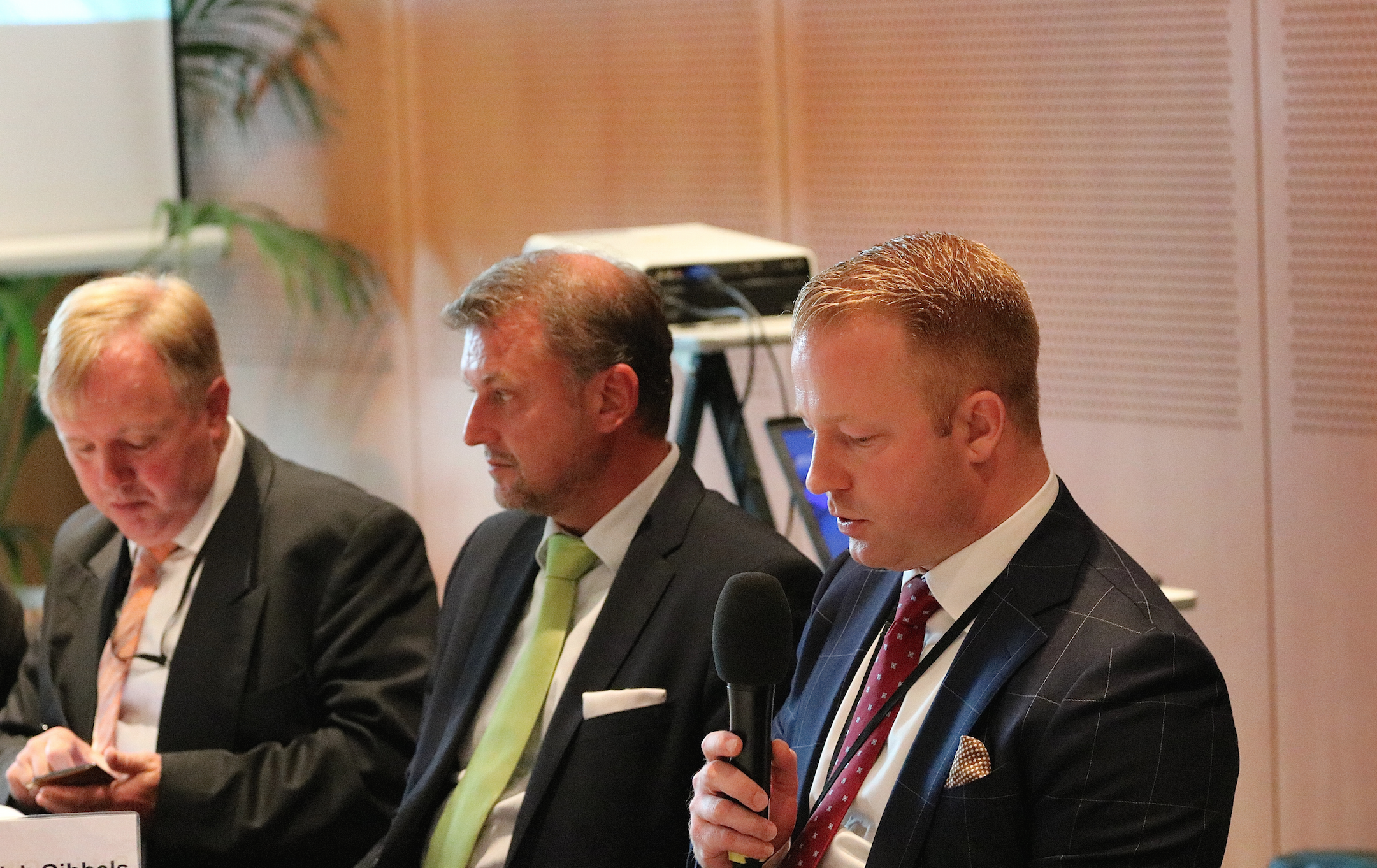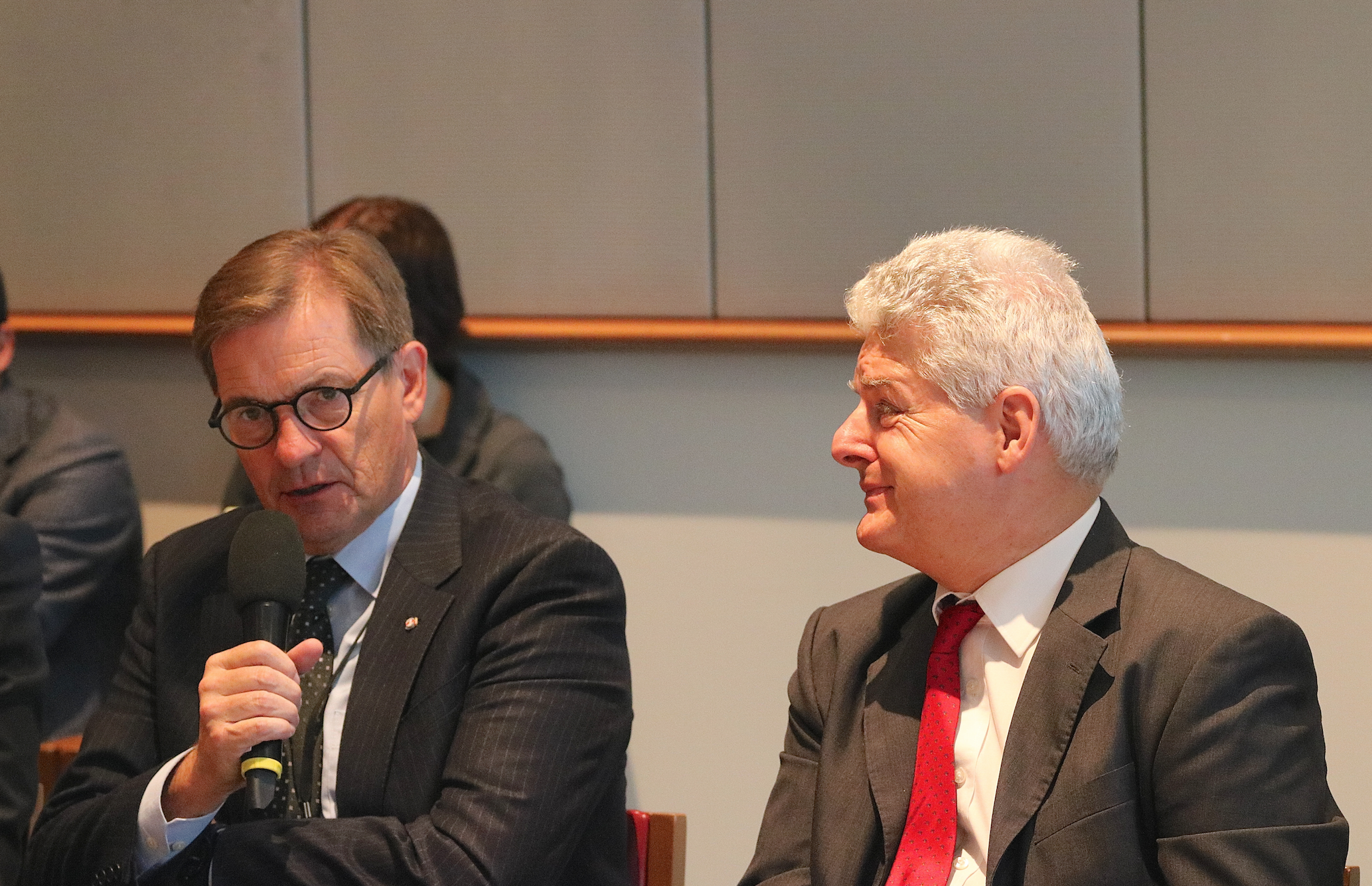“Encouraging SMEs to go cross board: EU Project to Mobilise SMEs”
On 26th September 2017, The European SME Business Club (a member of SME Connect) in cooperation with SME Europe of the EPP and Friends of SMEs, hosted a Working Breakfast event in the European Parliament on the following thematic: “Encouraging SMEs to Go Cross Border: EU Project to Mobilise SMEs”. The event featured the following speakers: Iuliu WINKLER MEP, First Vice-President of SME EUROPE, Co-Author of SME EUROPE’s Resolution on “Innovative Entrepreneurs”, Vice-Chair of the International Trade Committee (INTA); Arne GERICKE MEP, Member of the Committee on Employment and Social Affairs (EMPL); Bendt BENDTSEN MEP, President of SME Europe, Member of the Committee on Industry, Research and Energy (ITRE); Stefan MORITZ, Managing Director of European Entrepreneurs CEA-PME, and Martin PILSER, Policy Officer, Market Access Unit, Directorate-General for Trade; Patrick GIBBELS, Secretary General of the European Small Business Alliance.
Iuliu Winkler MEP, who is a strong voice for SMEs in the European Parliament and was also the host of the event, began the event by welcoming all attending speakers and guests. He explained that removing barriers, such as bureaucracy, are of outmost importance for the development of SMEs. Extensive and convoluted boreoarctic structures are expensive and inhibit SMEs moving abilities, MEP Winkler said. He appealed to work towards the formation of a huge European market, where it would be easier for SMEs to work together. MEP Iuliu Winkler concluded his welcoming remark by inviting SMEs to raise up their voice, so they are heard by the European Parliament and European Commission as part of the European economy.
After Mr. Winkler’s welcoming statements, Stefan Moritz took the floor. He explained that the project Mobilise SMEs is very much alike to the project Erasmus for entrepreneurs, but emphasized that the average age of its subscribers is between 30 to 40 years old. He further explained that his team usually have to work while keeping in mind three different interests: 1. The interests of the the host entrepreneur. A survey in the end of test phase shows that over 90% of the subscribed SMEs participants think there was a good match between their needs as senders and their needs as hosts [We invite you to check the website of Mobilise SMEs if you would like to know more information on the project.
Martin Pilser, Member of the Directorate-General for Trade of the European Commission, focused his Keynote Speech on the EU’s trade policy and its scope. He began his Keynote speech with some important facts: 700.000 SMEs are involved in trade and export outside the EU and 300 million jobs depending on these exports. He stated that the internationalisation of SMEs would bring further innovation to the European market. Mr. Pilser revealed, it is a private decision of SMEs to go cross border, that’s why the Commission and Directorate-General for Trade work on new flexible approaches and also on a huge information platform for SMEs, like the EU Export Helpdesks, that would offer attractive databases for entrepreneurs. That is why it should be the goal of everyone who wants to promote growth and prosperity for SMEs, to open the market: “the more we have agreements, the more there is trade, the more companies are involved, and thus more skilled work force is needed.”
Arne Gericke MEP, Member of the Committee on EMPL, who has plenty of experience in the SME sector, due to his responsibilities as manager of an SME in the early nineties, took the floor, and brought to the discussion his practical opinion in what SMEs need. He warns, that the willingness for change and growth has to come from the entrepreneurs themselves. To support them it would be necessary to create “a framework that works”. Protectionism and the European bureaucracy jungle tend to inhibit SMEs to go cross border, this is why Mr. Gericke called for the Mobilise SMEs exchange to continue supporting SMEs.
After Mr. Gericke’s intervention, Patrick Gibbels, who is not only the Secretary General of the European Small Business Alliance, but also an SME owner, took the floor. He began his Impulse statement, by mentioning that most legislation in the European Union is created to regulate bigger companies but also regulate SMEs. “We are not spending enough attention to the needs and specifics of small and medium companies” Mr. Gibbels explained. It is quite clear, that a law tailored for a company with 200 employees will not work for a company with 5 employees. Mr. Gibbels further remarked that Mobility is a very important factor, if you want your business to go cross border; the main topic entrepreneurs must to learn to manage is digitalization. “On the one hand there is digitalisation, which offers us a huge bowl of new opportunities. However, on the other hand, it creates challenges for those who are not able to make use of its benefits”, Mr. Gibbels warns.
Bendt Bendtsen MEP, President of SME Europe and member of the ITRE Committee, was also a strong voice for SMEs in our working breakfast. He closed our discussion with a short Statement, where he began by pointing out, that 85 % of all new jobs are created by SMEs. He referred to the State of the Union Speech from Mr. Junker when he says, that the European economy is growing, but it’s time to continue furthering its growth. Mr. Bendtsen maintained that SMEs and their prosperity and growth are the best course of action to guarantee growth in our economy.

